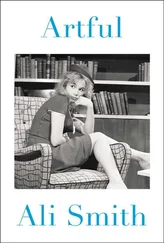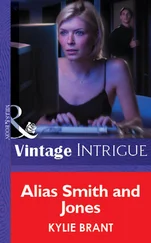Minotaur you? Mrs Rock says.
I’m sorry? George says.
You said minotaur you, Mrs Rock says.
No I didn’t, George says. I said monitor. You’re monitoring me. You must have heard that other word inside your own head and decided I said it for some reason of your own.
Mrs Rock looks suitably discomfited. She writes something down. Then she looks back up at George with exactly the same blank openness as before the conversation.
And anyway, literally, if I get to choose how I use this time, then I can choose to send a text in it, George says.
Not unless it’s to me, Mrs Rock says. And if you do, you’ll be in trouble. Because, as you know, if you get your phone out of your bag and I see you using it on school property at a time that’s not lunch hour, I’ll have to confiscate it and you won’t get it back till the end of the week.
Does that rule hold even in counselling? George says.
Mrs Rock stands up. It is quite shocking that she does. She takes her coat off the back of the door and opens the door.
Come with me, she says.
Where? George says.
Come on, she says.
Will I need my jacket? George says.
They walk down the corridor and past all the classrooms full of people doing lessons, out of the main school doors then along the front of the school to the school gate, which Mrs Rock walks through. George follows.
As soon as they’re beyond the gate Mrs Rock stops.
You can now get your phone out, Georgia, without breaking any rules, she says.
George gets her phone out.
Mrs Rock turns her back.
You can send that message now, Mrs Rock says.
— Semper is always, George writes. Or there is a good word, usquequaque. It means everywhere, or on all occasions. Perpetuus means continual or continuous and continenter means continuously. But I can’t mean any of them because right now for me they are just words . Then she presses send.
When they get back to Mrs Rock’s room, there’s ten minutes of the session left.
This is the point at which you sit forward and tell me the story or whatever you’ve decided to tell me about and with which you want to round off the session, George says.
Yes, but today, Georgia, I think you should round the session off, Mrs Rock says. I think the theme which arose for us today was talking and not talking, and the whens and the wheres and the hows of both of these. Which is why I think it was important that we detoured a little out of the school structure, so that you could make the connection you so clearly felt it was urgent to make.
Then Mrs Rock talks for a bit about what saying things out loud means.
It means a decision to try to articulate things. At the same time it means all the things that can’t be said, even as you make the attempt to put some of them into words.
Mrs Rock means well. She is very nice really.
George explains that when she gets out of here and checks her phone she’ll see that the message Mrs Rock just went so out of her way to let her send will have the little red exclamation mark and the sign next to it saying not delivered, because there is no way you can send a message to a phone number that no longer exists.
So you sent a message knowing that your message would never reach the person you sent it to? Mrs Rock says.
George nods.
Mrs Rock blinks. She glances at the clock.
We have two minutes left, Georgia, she says. Is there anything else you’d like to bring to the session today, or anything else you feel you need to say?
Nope, George says.
They sit in silence for one minute and thirty seconds. Then the bell goes.
Same time next Tuesday, Georgia, Mrs Rock says. See you then.
When George gets home, H is waiting on the front step.
This is the third time H has come to the house.
I thought you weren’t talking to me / what if I will never love / never want / never desire / I think I might not be a very /
Hi, George says.
Hi, H says. I’m really. I’m.
It’s okay, George says.
I was feeling really lousy today, H says. I wasn’t much up to it.
Then H tells her that she found out last night when she got home that her family is moving to Denmark.
Moving? George says. You?
H nods.
Away? George says.
H nods.
For good? George says.
H looks away, then looks back at George.
Can you just take a school student out of a school year like that? George says.
H shrugs.
When? George says.
Beginning of March, H says. My father’s work. He’s in Copenhagen now. He’s found us a fantastic apartment.
She looks miserable.
George shrugs.
Empathy sympathy? she says.
H nods.
Brought my ideas, she says.
They sit down at the downstairs table. H switches on her iPad.
She has had an idea that they should do a presentation on the painter who did the painting which George’s mother liked enough to go all the way to Italy to see. She has found some other pictures by him and a bit of biography.
Not that there’s much, she says. The thing it always says about him, in the hardly-anything-there-is when you do look him up, is that very little is known about him. They don’t know for sure when he was born and they only know he died because there’s a letter that says he did, maybe in the plague, and he was 42 the letter says, which means they can work out a rough birthdate, but no one’s sure exactly which years, it could be one or the other. And there’s the letter he wrote himself, that your mother told you about, that he wrote to the Duke about wanting higher pay. There’s one of his pictures in London in the National Gallery and there’s a drawing at the British Museum. There are only fifteen or sixteen things by him in the whole world. At least I think so. A lot of what I was looking at came up in Italian. I google-translated it.
H reads something out.
Cossa was the victim of the plague that infierti in Bologna between 1477 and 1478 … the 78 would be the most likely date, jackets in this year’s disease came of rawness .
Jackets what? George says.
Jackets in this year’s disease came of rawness, H says again. I wrote it down exactly. That’s what it said.
She reads another bit.
The few early works do not leave almost predict doing compositions so innovative imaginative —
then she says a word that sounds like annoy or paranoia.
She shows it to George on the page.
— so innovative imaginative Schifanoia .
That’s it. That’s the place we went to, George says when she sees the word.
(Her mother is saying it next to her in the car in Italy right now, months ago. It is the place to which they are on their way.
Skiff. A. Noy. A. , she is saying. Translated, it means the palace of escaping from boredom.
I’ll be the judge of that, George is saying back.
They pass a roadsign that makes George laugh because it points the way to somewhere called Lame.
They pass another. It says
Scagli di vivere
non berti la
vita
Is that what it said? Something to live, not something the life? It went past so fast.)
H has decided that they could do the empathy / sympathy exercise about this painter precisely because there’s so little known about him. This means they can make a great deal of it up and not be marked wrong because nobody will know either way.
Yeah, but will Maxwell expect us to do all that dreary historical imagine you are a person from another time stuff? George says. Imagine you are a medieval washerwoman or wizard who’s been parachuted into the 21st century .
He’d speak like from another time, H says. He’d say things like ho, or gadzooks, or egad.
I don’t think they knew about the word ho, I mean about what it means in rap songs, in Italy in the whenever it was, George says.
Читать дальше












